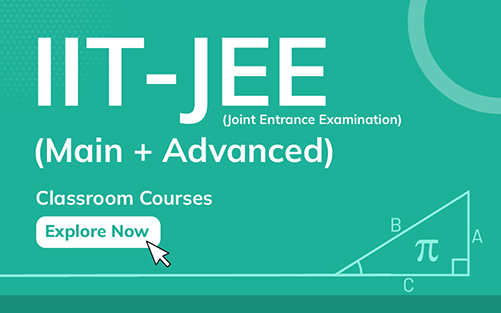NEET vs. JEE: Which Exam is More Challenging?

Every year, thousands of students prepare for two of the most prestigious and challenging entrance exams, i.e.; NEET and IIT JEE. Both exams are highly competitive and gateways to amazing careers in medicine and engineering, respectively. Now the question often arises NEET vs JEE, which is tough?
This blog aims to differentiate NEET and JEE, highlighting their difficulty level, competition, success rate, eligibility, salary and other related aspects. Besides this, we will also look into the actual needs of the exams and will go through a one-stop solution for result-oriented NEET and IIT JEE preparation. Let’s delve into a detailed comparison to understand the nuances of both.
Exam Structure and Syllabus
NEET: National Eligibility cum Entrance Test
Subjects Covered: Physics, Chemistry, and Biology (Botany and Zoology).
Number of Questions: 180 questions.
Total Marks: 720.
Duration: 3 hours.
Syllabus: NEET’s syllabus is based on the NCERT curriculum of classes 11 and 12. Biology has a heavier weightage with 90 questions, while Physics and Chemistry have 45 questions each.
Joint Entrance Examination (JEE)
Subjects Covered: Physics, Chemistry, and Mathematics. Number of Questions: Varies between JEE Main and JEE Advanced.
Total Marks: Varies (JEE Main: 300, JEE Advanced: Variable).
Duration: JEE Main (3 hours)
JEE Advanced (3 hours for each paper I and Paper II).
Syllabus: JEE covers a broader and more in-depth syllabus than NEET, including topics from classes 11 and 12 but with a higher difficulty level, especially for JEE Advanced.
NEET Syllabus Vs JEE Syllabus
NEET focuses on a vast syllabus with an emphasis on memorization, especially in Biology. While, JEE requires a deeper understanding and application of concepts in Physics, Chemistry, and Mathematics. The depth and complexity of JEE’s syllabus, particularly for JEE Advanced, often makes it more challenging in terms of problem-solving proficiency.
NEET Vs JEE: Difficulty Level Analysis
- NEET: Questions in NEET are generally straightforward and directly based on the NCERT textbooks. The difficulty lies in the vast amount of content to be understood and memorized, especially in Biology.
- JEE: JEE questions, especially in JEE Advanced, are known for their complexity and application-based nature. Aspirants need to apply multiple concepts to solve a single problem, requiring higher-order thinking skills.
- NEET vs JEE Advanced: The questions in JEE Advanced are more challenging because of their conceptual nature and the requirement to integrate multiple ideas to solve problems. NEET’s questions are relatively straightforward but require quick recall and accuracy.
- Competition and Success Rate
- NEET: Over 23 lakh candidates appeared in NEET 2024, for approximately 90,000 MBBS seats. The selection ratio is around 1:17, making it a highly competitive medical entrance exam in India.
- JEE: More than 10 lakh students appear for JEE Main, with approximately 2.5 lakh qualifying for JEE Advanced. Only about 16,000 seats are available in the IITs, making the competition for top engineering colleges even more intense. Both exams are competitive, but the chances of securing a top-tier seat are challenging in JEE, particularly for the IITs. The intense competition in both exams makes them highly challenging.
NEET vs JEE Eligibility
- NEET Eligibility: A candidate must have passed or be appearing for their 12th examination or equivalent with Physics, Chemistry and Biology/Biotechnology, as major subjects.
- Age Eligibility: A candidate must have completed 17 years of age at the time of admission.
- Marks Criteria: A candidate must have obtained a minimum of 50% marks for the unreserved category and 40% for OBC/SC/ST and PWD categories in Physics, Chemistry, and Biology/Biotechnology at the qualifying examination.
- JEE Eligibility: JEE Main Eligibility Criteria: A candidate must have passed or be appearing for the 12th or equivalent examination with PCM
JEE Advanced Eligibility Criteria:
- Candidate must qualify in the JEE Main
- Must have secured at least 75% aggregate marks in the 12th or equivalent examination.
NEET vs JEE Salary
Choosing between NEET and JEE is an important decision for aspirants, often influenced by career opportunities, including salaries. Understanding the potential earnings and career can greatly impact this decision-making process.
For NEET qualifiers, the career path primarily leads to the medical field, offering a wide range of opportunities both in private practice and in the public health sector. The earning prospects in the medical field are substantial, with specialists and surgeons often earning high salaries, especially in private healthcare setups.
Conversely, candidates who opt for JEE and pursue engineering have a distinct set of opportunities. Engineers can explore roles in various sectors, including joining prestigious PSUs or opting for the coveted Indian Engineering Services (IES). Engineering disciplines offer various specializations, from civil and mechanical to computer science and electrical engineering, each with its own career path and salary potential.
In terms of salary, both NEET and JEE careers offer competitive remuneration. Medical professionals, particularly those in specialised fields like neurosurgery, cardiology, or orthopaedics, can earn significantly well, reflecting their expertise and demand in the healthcare industry.
Engineers, especially those in sectors like software development, petroleum engineering, or management roles in PSUs, can earn attractive salaries, proportional to their skills and valuable experience.
Stress and Pressure
- NEET: The pressure of memorising vast amounts of information can be mentally tough.
- JEE: The need for deep conceptual clarity and the pressure to solve complex problems can be challenging. The two stages (JEE Main and JEE Advanced) extend the period of stress.
Both exams induce considerable stress, but the prolonged preparation and complexity of JEE can lead to higher stress levels than NEET.
Actual Demands of NEET and JEE Preparation
- NEET: Preparation for NEET requires rigorous memorisation and practice, especially in Biology. A strategic approach involving consistent revision and practice of past papers is essential.
- JEE: JEE preparation demands a strong foundation in Physics, Chemistry, and Mathematics from an early stage. Students often require coaching and extensive problem-solving practice to master the exam’s intricacies.
While both exams require dedicated preparation, the strategic approach for JEE often demands more analytical thinking and problem-solving skills, making the preparation phase more intellectually challenging.
Conclusion
Ultimately, the difficulty of each exam is subjective and depends on an individual’s strengths, weaknesses, and career aspirations. Aspiring doctors might find the aspects of NEET more manageable, while future engineers might thrive on the problem-solving challenges of JEE. Both paths require commitment, resilience, and a strategic approach to achieve success.
Most of the time, students get confused about NEET vs JEE. Which is better? Both exam syllabi are based on 11th and 12th standards. The answer to this question might be subjective and depend on various parameters such as the passion to learn mathematics or biology, which is the major deciding factor and many other factors are also prominent.
In the end, the most challenging exam is the one that doesn’t ignite your passion. So choose wisely, prepare diligently, and crack the exam for your dream career!
At last, after observing the various parameters, here is a viewpoint of their relative difficulties.
- JEE MAIN: Least Difficult Level
- NEET: Medium Difficulty Level
- JEE Advanced: Difficult
Enrich your preparation with MENIIT’s Quality Classroom Courses for NEET and IIT JEE 2025.
Frequently Asked Questions (FAQs)
Which is more difficult, NEET or JEE?
Usually, IIT JEE is considered the most challenging exam as compared to NEET. As it requires deep conceptual understanding and analytical skills to solve advanced questions.
Why is IIT tougher than NEET?
IIT JEE is challenging in comparison to NEET because it incorporates a high level of standard in terms of questions, approach, and comprehensive syllabus. Preparation for IIT JEE demands deep conceptual understanding, logical thinking, and the ability to apply concepts within a limited time. These prerequisites and features make it a challenging and well-known difficult exam. However, NEET also maintains a high level of standard and requires the same level of preparation.
Is NEET the hardest exam in India?
Every exam is challenging if not prepared well. NEET is challenging because it demands strong fundamentals and conceptual clarity in Physics, Chemistry and Biology.
How many times is NEET conducted in a year?
NEET is conducted only once in a year.
How many times is the JEE Main conducted in a year?
JEE Main is conducted twice a year. Session 1 is usually conducted in January, While Session 2 is conducted in April.
















